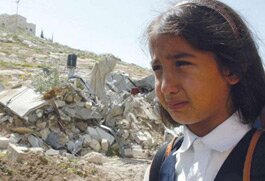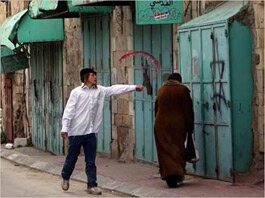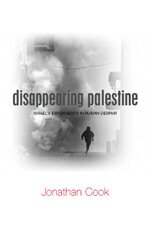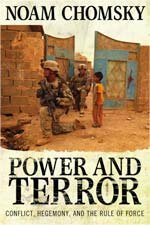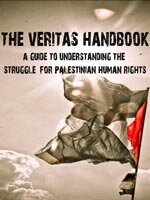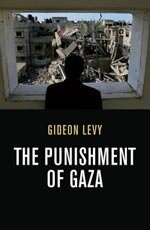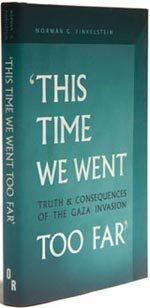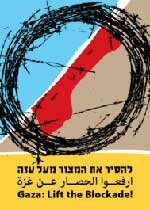Yossi Melman, Haaretz chief military intelligence analyst: “The reason Turkey banned Israel from this week’s NATO air force exercises had nothing to do with January’s war in the Gaza Strip. Rather, it was because of delays in the delivery of unmanned aerial vehicles to the Turkish army, a source in the Turkish Air Force said.”
IOA Editor: Whether it was Israel’s attack on Gaza or the failure to deliver Israeli killer-drones to Turkey on schedule, note that the right to use force, by either country, is assumed to be absolute. Melman doesn’t even mention it, let alone question it.
Turkey agreed four years ago to buy 10 Heron UAVs [drones] for over $180 million from Israeli Aerospace Industries (IAI) and Elbit Systems, Ltd. However, the Israeli firms missed the deadline for delivery.
Dr. Samir Awad, Birzeit University: “The Turks could bring pressure to bear on the Israelis to moderate their treatment of the Palestinians as Israel values its strategic relations with Turkey. The Palestinians can only benefit from this… Turkey could also exert influence on the Americans to lean on their Israeli ally”.
Israel is violating international law by detaining hundreds of Palestinians, some of them for years without charge or trial, two leading human rights groups in the country have said.
READ the B’Tselem report announcement
WATCH the Al Jazeera TV report
Key questions:
- What are the implications of a Turkey-Israel rift on the international effort to stop Iran’s nuclear quest?
- Does this signal a dramatic change in relations between the Turkish military and the moderate Islamic Administration of the ruling AK party?
- Will the Turkish ban on Israel prove to be the first tangible boycott by a country allied with Israel?
- And, what effect will this have on Israel’s obdurate policies with respect to easing their unrelenting pressure on the Palestinians?
The foreign, defence, interior, economy, oil, electricity, agriculture and health ministers of the two countries attended the strategic talks in the northern Syrian city of Aleppo.
“… When phosphorus bombs were rained on innocent children in Gaza, the whole world, all of humanity, watched…” the Turkish prime minister said. “… unfortunately from time to time in international discussion platforms, the term ‘Islamic terror’ began to be used, and efforts were made to place blame on the Muslims and Islam.”
Israeli authorities are planning to demolish 150 Palestinian houses, home to about 1,000 people in East Jerusalem, according to a new report from the Jerusalem Center for Social and Economic Rights… [This figure does] not include another 125 houses and apartments whose owners were given demolition orders.
While Israel often accuses Palestinians of misusing ambulances as cover for attacks, a new report from the country’s second-largest newspaper suggests Israel may want to clean up its own house.
The United States sent a message to Egypt stating it does not support the proposed reconciliation agreement between Fatah and Hamas as it would undermine negotiations with Israel, Haaretz has learned.
IOA Editor: Divide and Rule.
King Abdullah II: “We are seeing problems in Jerusalem that will directly destabilize not only the relationship with Jordan – which has a special concern and role in Jerusalem that is recognized in the peace treaty – but will also create a tinderbox that will be a major flashpoint throughout the Islamic world.”
“It may be that the reality has changed and the strategic ties that we thought existed [with Turkey] have simply ended,” said a senior Israeli official.
IOA Editor: If true, this will be the first significant negative consequence yet to Israel from its Gaza attack. After the US, Turkey has probably been Israel’s most valuable strategic ally for 50 years. It might also bear on any Israeli attempt to bomb Iran, which might have involved US-Israeli bases in Eastern Turkey.
More Israeli-centered Analysis of the Turkey-Israel crisis
several Turkish requests are currently under consideration by the Defense Ministry’s Foreign Defense Assistance and Defense Export Organization (SIBAT). These will now need to be reviewed due to the change in the diplomatic ties between Jerusalem and Ankara.
IOA Editor: It is unclear who stands to lose more by stopping Israeli military arm sales to Turkey: might it not be the Israeli military industries?
Another Israel-centered story, suggesting how potentially serious the change in relations with Turkey is for Israel.
[British Ambassador to the UN said that] he supports the findings of the Goldstone commission, and called for both Israel and the Palestinians to investigate its conclusions… The [Israeli] Foreign Ministry convened an emergency meeting in light of Sawer’s comments, and told ministers not to issue any official response.
Turkish Prime Minister Recep Tayyip Erdogan has been under pressure recently to exclude Israel from the drill, on the grounds that Israel should not be allowed to participate while its planes are bombing the Gaza Strip.
IOA Editor: The Turkish people have spoken.
Even supporters of the Palestinian Authority admit that it was clearly outmanoeuvred by the Israelis and the Americans, and was seen to be totally out of touch with its own public and the Arab and international supporters.
IOA Editor: Illuminating coverage of the background to the Abbas’ decision, and valid practical advice to the PA. However, stating that the Israeli government stood up to “tremendous US pressure” is not supported by by facts: there is no evidence of any actual US pressure.
We strongly urge the leadership to reconsider its decision, and to begin to forge an independent path of diplomacy based on respect for international law that can lead to genuine justice and durable peace.
Sahar Francis, a Palestinian Israeli human rights lawyer: [T]he US and Israel, in the name of peace, were actually trying to push the point that any kind of accountability measures against Israel will affect negotiations. But how can you reach peace without giving justice to the people?

